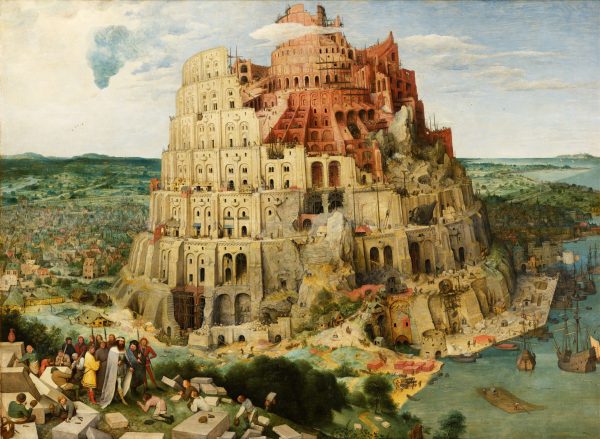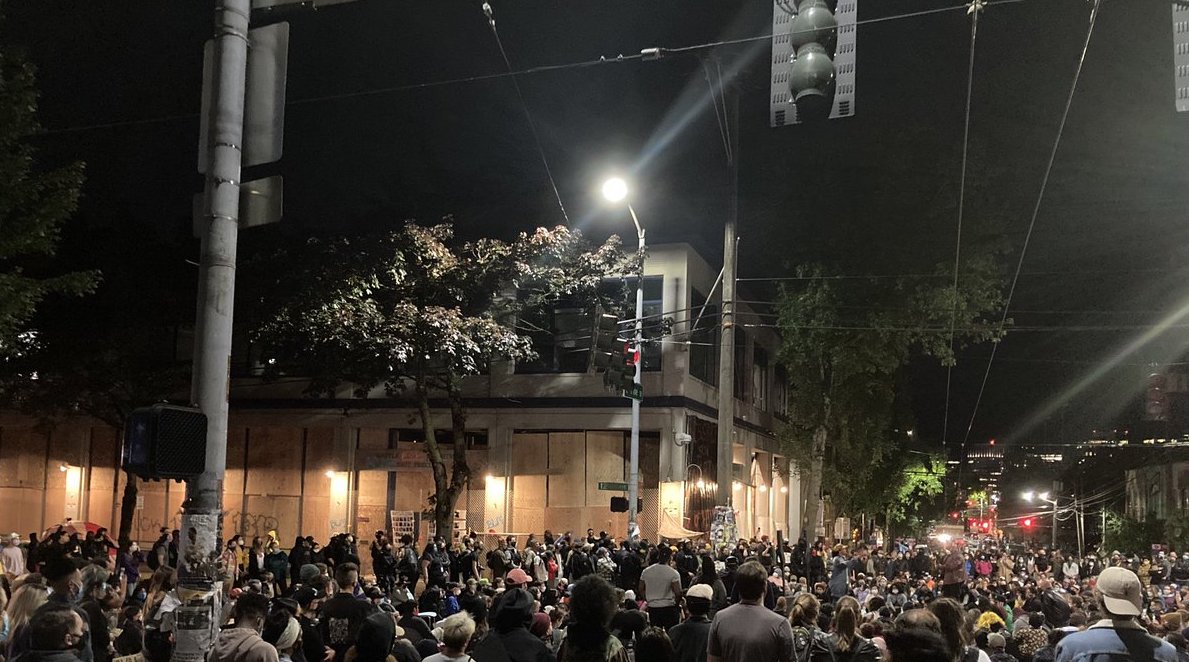What's today really about?
We Need New Institutions, Not Arguments

In a time of intellectual Babel, words fail.
In my response to Adrian Vermeule this week, I wrote the following somewhat bleak assessment of our public discourse:
We live in a time of intellectual Babel, in want of the shared premises, definitions, history, and intellectual formation by which to engage publicly and profitably in such discussion. The result is suspicion, confusion, division—among the populace and proliferating elite ideological subgroups—and a great deal of noise as we observe the world fracture around us.
It is likely too late in the life cycle of the republic for any argument to matter. Rather, what is needed most these days is active statesmanship in the service of re-formation, renewal, and revitalization.
Argument is now wearisome—not only because it is often pointless when we share so few premises in common, but also because, having found that certain premises which we once espoused are false, we begin to distrust all premises and assumptions themselves.
Words become burdensome not only when there is no shared language among interlocutors, but also when we come to distrust language itself.
Forget hoping to convince anyone of your argument or conclusion: discourse is meaningless when one’s audience is too ignorant or fractured to understand or agree with most of the central ideas one uses to communicate. And discourse induces despair when, having been burned by bad ideas too many times, we distrust ideas altogether.
This is what the young learn whether or not anyone intended to teach it.
The medium is the message. This is not merely a zany quote from a once-famous student of modern media named Marshall McLuhan. It is a truth buried deep in the geology of Western thought. It is not only the tools and technology we use to communicate that shape our perception of the world and of each other. Institutions do much the same thing.
That is, institutions—the family, the school, the government, the church, and so on—are also media. It is true that through these media we learn discrete bits of knowledge and specific habits. But ultimately the institution itself is the message: the general trends drown out the exceptions. The one saintly person in our dysfunctional family, the class or two we took with the outlier professor, the politician we think good, or the particular laws we still think wise: all of them are overpowered by the structural failures of the systems in which they operate.
Western political philosophy virtually starts with the observation that institutions, or the governing structures of our various kinds of communities, shape the contours of our psyche. The structures of our communities shape our souls.
We cannot discern the total way in which they shape us; we cannot wrap our minds around them. Rather, they envelop us. They submerge us in an environment constructed by means of certain principles and toward specific purposes as opposed to others, and this environment shapes the way in which we think and live. Institutions are the vehicles that deliver the most meaningful goods in our lives, but they do not just drop off discrete packages. They shape us whole, forming our person and our understanding of the world.
It is very foolish to think that profoundly disordered institutions—whose reason for being is, say, to tell untruths on behalf of power—are likely to produce leaders who can even adequately grasp what is now happening, never mind what needs to happen. Our elite schools are an instructive example: the best graduates received an education despite the institution—in a slipstream of a department or under the tutelage of one or two exceptional professors.
When institutions become rotten enough they can no longer fulfill their proper function, or else they habitually pursue false and evil ends. Such institutions malform and wound human minds and hearts beyond what even the best sorts of words can heal or reshape. There comes a point when it does not matter much if there are still pockets within them that haven’t yet rotted, or a few good people remaining to pursue good ends.
Any remedy for the negative effects we suffered from the deformation and blindness of corrupted institutions must reshape us into something whole and healthy. But the very reason for the existence of these institutions in the first place is that we cannot fully shape ourselves on our own. This is the paradox we find ourselves in today.
Words fail.
We have been habituated to think and see the world wrongly. We need new habits of being, of thought and action, in order to right ourselves. We must turn of necessity to experience and reality when the dreams that have been implanted in our hearts fail and the ideas in our heads have proven false. It’s all we have left. But this is a hard road, and it limits how far we can travel.
We will need new or wholly remade institutions and tools, ordered and used rightly, if we are to return to health. We will also need different educators and leaders. Exceptions do not falsify the point, but prove the rule.
If insanity is doing the same thing over and over again and expecting different results, refusing to acknowledge the need for new institutions at this point in American life is a form of madness.
Habitual indictment of corrupt institutions, leaders, and the general morass has become the Right’s pacifying mantra, a diversion that lulls us into the sleep of inaction. Words do not absolve us from what needs to be done, not written. It is time to act—to attack corrupt institutions and defend the good, yes, but this too is worth little without a positive understanding of what this action is for. And for others to see and understand such a positive vision, what we must do now is show, not tell.
It is indeed time to build.
The American Mind presents a range of perspectives. Views are writers’ own and do not necessarily represent those of The Claremont Institute.
The American Mind is a publication of the Claremont Institute, a non-profit 501(c)(3) organization, dedicated to restoring the principles of the American Founding to their rightful, preeminent authority in our national life. Interested in supporting our work? Gifts to the Claremont Institute are tax-deductible.
It’s Coming.
The American people deserve honesty about who is at fault for the virus disaster.
It’s time to reassert the authority of we the people.
America’s ideals are worth defending against two-bit impostors.
I will arise and go now.






